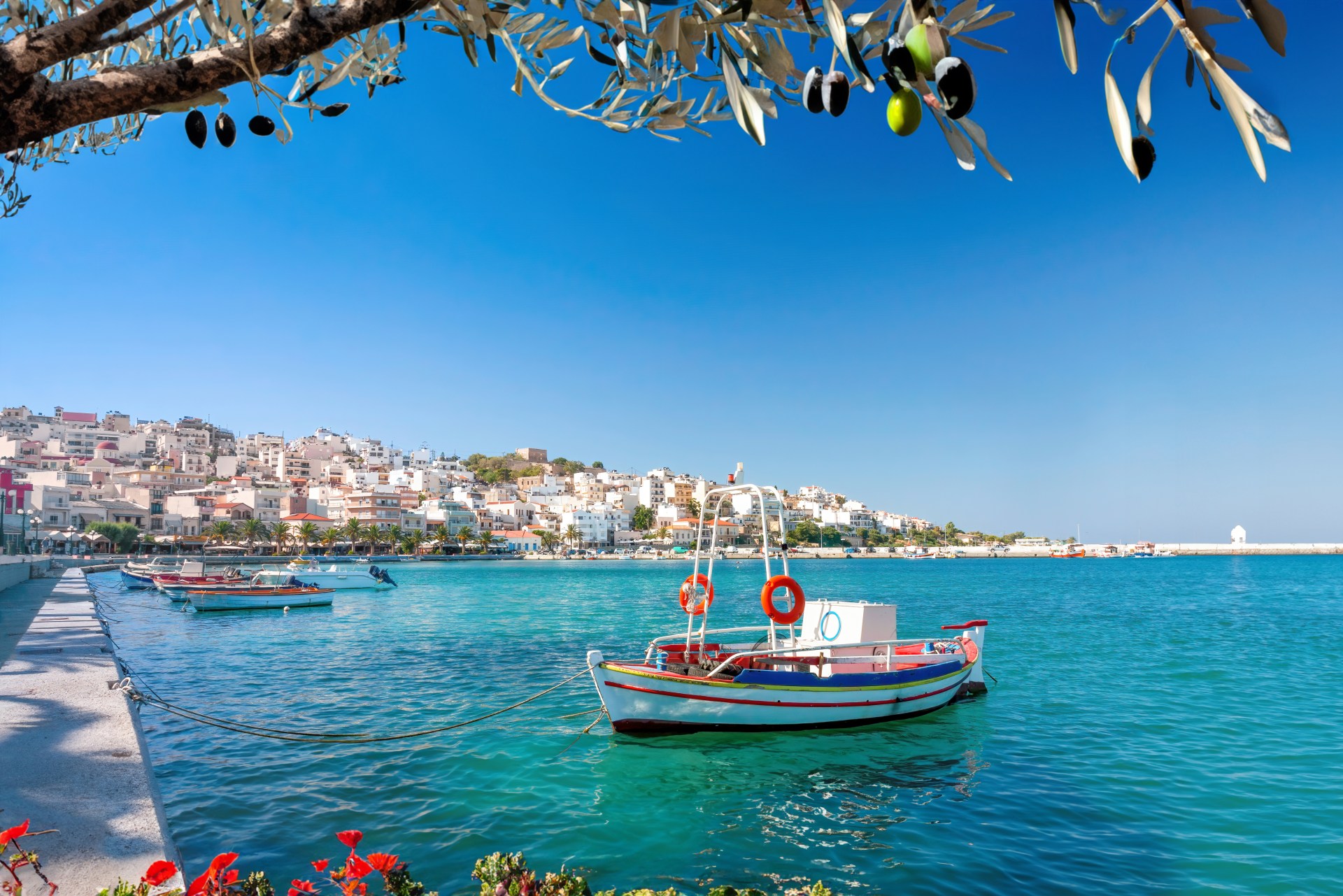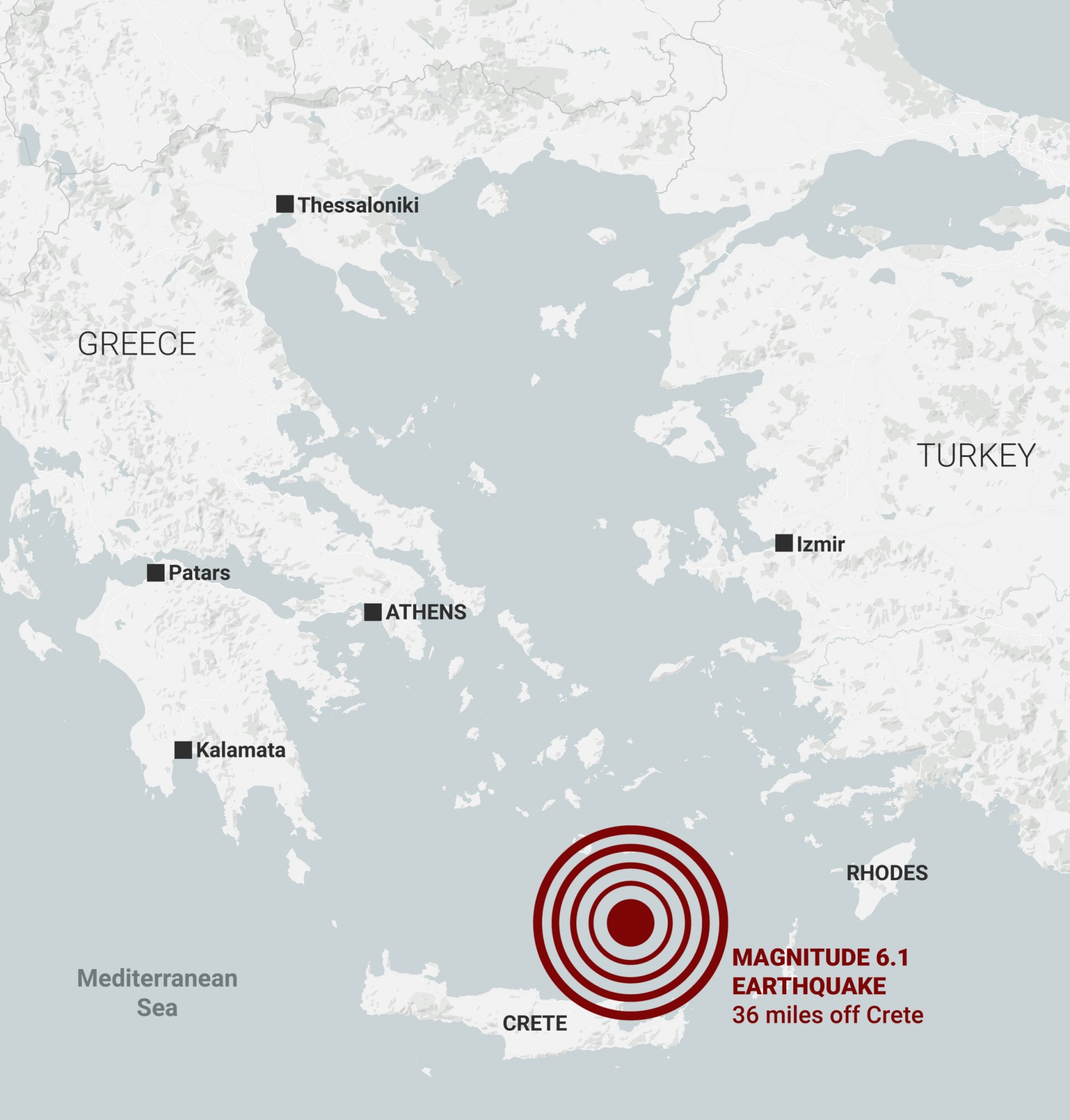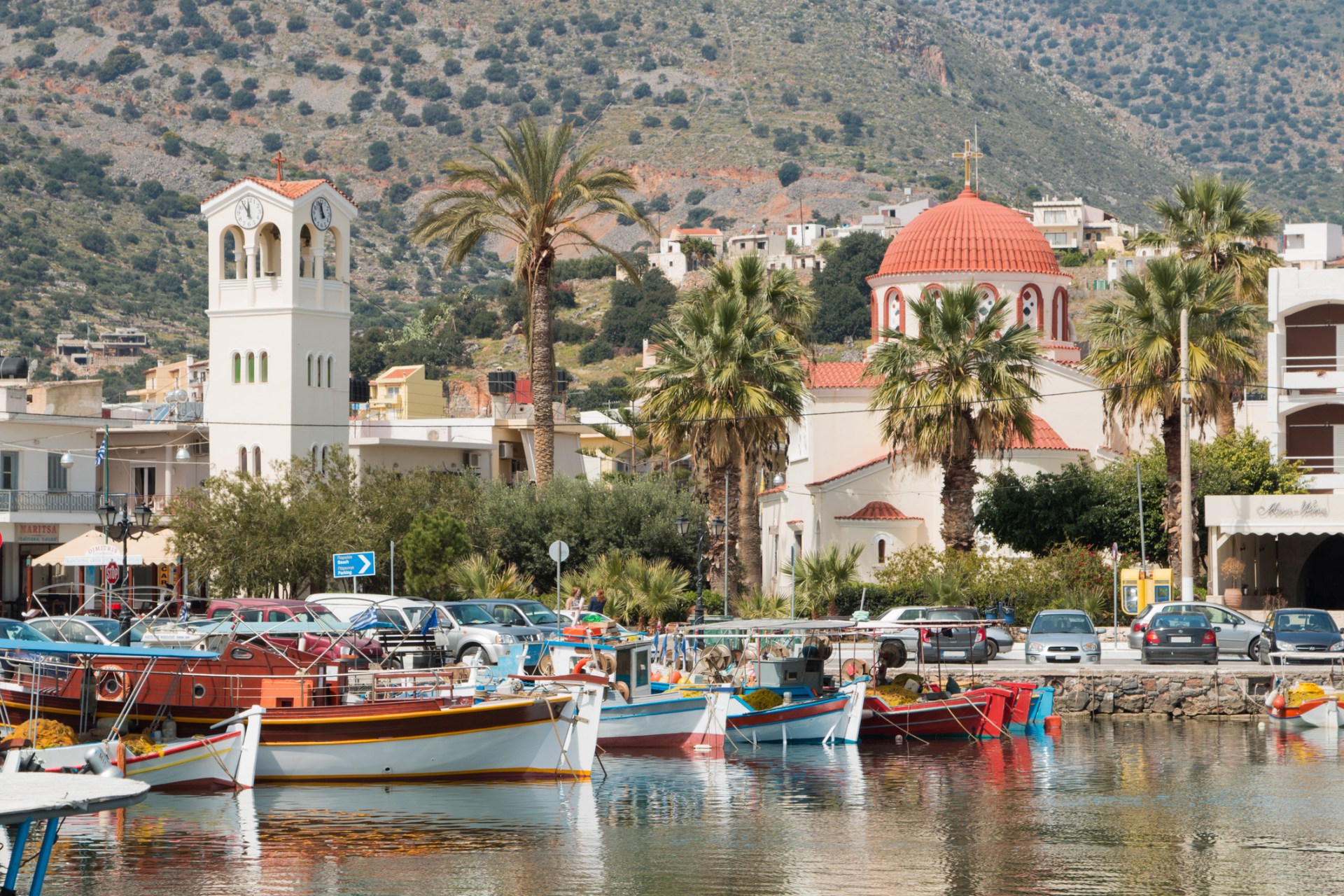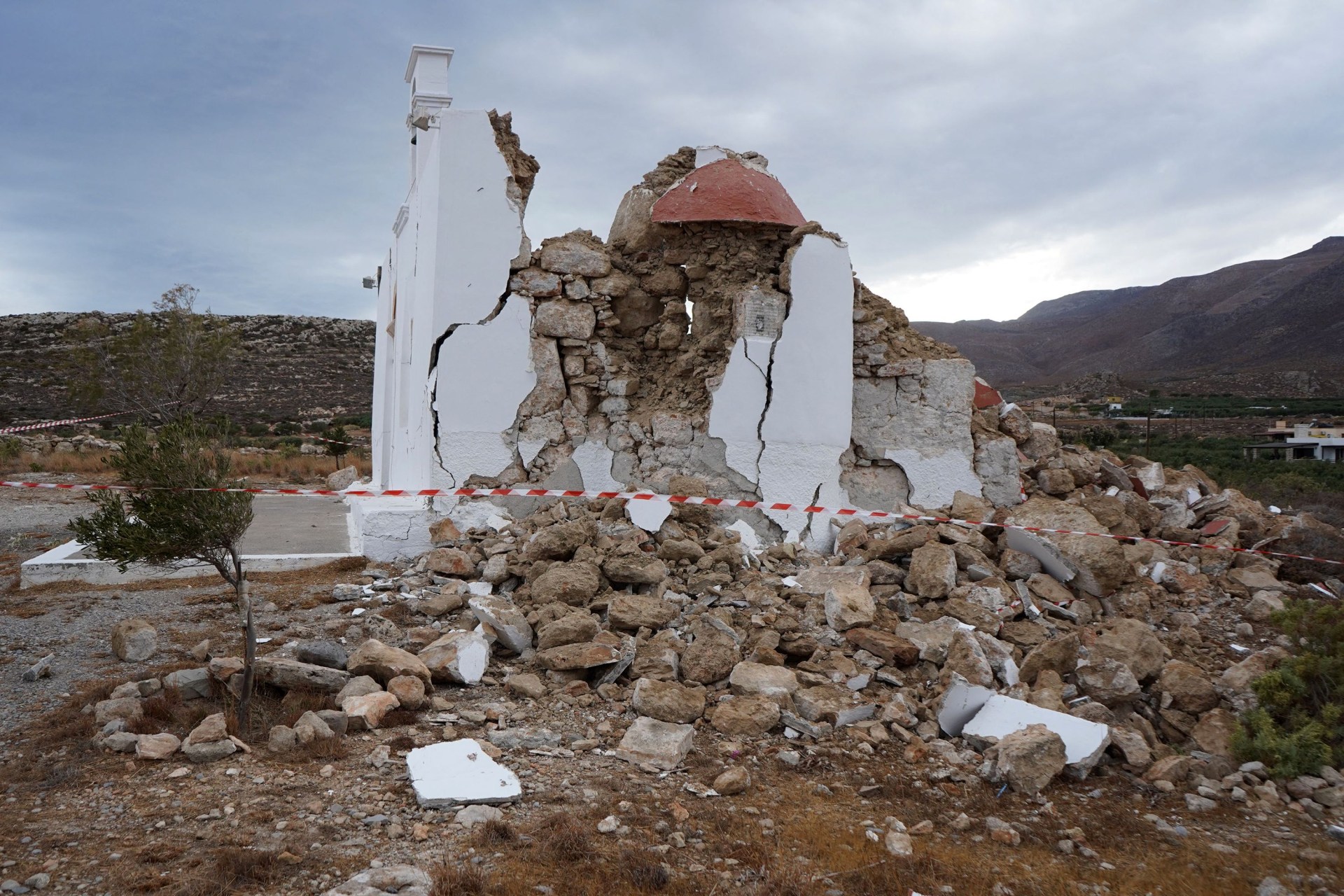Is Travel to Greece Safe After 6.1 Magnitude Earthquake Hits Crete? Tsunami Warning Issued

A number of Greek Islands such as Crete and Santorini have been struck by a severe 6.1 magnitude earthquake, leading to tsunami warnings .
The earthquake’s focal point was located 58 kilometers away from the shore of Elounda, Crete, and people throughout the area experienced shaking.
The European-Mediterranean Seismological Centre (EMSC) has now issued a tsunami warning covering Greece, Turkey , Italy , France and Portugal .
So far, no injuries or significant damages have been reported. However, Greek officials have issued a nationwide order instructing both residents and visitors to move away from coastal areas and head for elevated locations.
Greece is one of Europe ’s most earthquake-prone countries. Just last week, the country issued another tsunami warning after a 5.9 magnitude earthquake struck off the coast of the island of Kasos.
The seismology laboratory at the University of Athens documented over 18,000 small earthquakes just from January through February.
Subscribe to The Getaway mailing list
Stoke your sense of adventure with our handpicked newsletter featuring travel offers, tips, and inspiration. Sign up here .
Where did the earthquake occur in Greece?

The earthquake took place offshore from the east coast of Crete, close to Elounda. People posted on the EMSC website that they were awakened by the quake when their beds started moving; however, no evacuations were ordered.
The quake had a depth of 43 miles, and as reported by the US Geological Survey, yet Efthymios Lekkas from the Earthquake and Planning Protection Organisation noted that generally speaking, deeper seismic events tend to result in lesser destruction at ground level.
Regional government officer Giorgos Tsapakos stated, "There have been no reports of injuries or significant damage following the earthquake which hit just before 9 am local time (6 am GMT) today; however, the Greek fire brigade mentioned that all their units on Crete are on heightened alert."
Tremors have been felt in Turkey and Egypt , and the Greek Institute of Geodynamics has recorded 19 smaller quakes ranging from 1.3 to 3.5 magnitude since then.
The institute has recorded 104 instances of seismic activity in the last 24 hours.
Several of these events took place near the site of the 6.1 magnitude earthquake, with others happening in the waters surrounding the islands of Fira and Amorgos as well as the Greek mainland.
Is traveling to Greece secure?
Currently, there are no disruptions or cancellations affecting inbound flights to Greece.
Nevertheless, those planning to visit the island ought to verify with their airline providers prior to leaving for any recent developments.
The UK Foreign Office cautions visitors to be watchful for natural disasters in Greece.
They say :The region surrounding the Cycladic islands of Santorini (Thira), Anafi, Ios, and Amorgos saw heightened seismic activity at the beginning of 2025.
'This rise has now decreased, and the tourism season is anticipated to proceed normally. Earthquakes and seismic activities remain a potential hazard in Greece.'
‘You should familiarise yourself with safety procedures in the event of an earthquake, follow advice given by the local authorities, and call the Greek emergency services on 112 if you are in immediate danger.’

What is the significance of a tsunami alert?
Tsunamis do not necessarily occur after every earthquake; nonetheless, once a warning is released, it’s crucial to remain vigilant.
Greece’s Ministry for Climate Crisis and Civil Protection advises: ‘Stay away from seaside areas until you are informed by the competent authorities that the danger is over.
‘A tsunami is not a single wave but a series of waves with different times of arrival at the seashore.
'Do not go near the shoreline to observe an approaching tsunami. By the time you spot the tsunami, it might likely be too late to escape.'
Do earthquakes frequently occur in Greece?
Greece ranks among Europe’s top regions for frequent earthquakes. This is due to its location at the intersection of the African and Eurasian tectonic plates, leading to regular seismic events.
A 5.9 magnitude earthquake struck off the coast of Greece last week, leading to a brief tsunami alert and concerns about the safety of visiting the islands of Crete and Rhodes.
Lately, the well-known island of Santorini – which is also struggling against the impacts of excessive tourism – experienced a surge in unprecedented tremors. In February, an earthquake struck, which measured 5.2 on the Richter scale .
Thousands were forced to evacuate.
In October 2021, Crete was rocked by a 6.3 magnitude earthquake. A month before, an earlier quake devastated villages near the Cretan capital of Heraklion.
It damaged hundreds of homes and left many families displaced. The deadly tremor killed one person and injured dozens more.
In terms of Wednesday’s earthquake, Greek seismologist Efthymis Lekkas said it was an isolated event, unrelated to the Santorini activity and recent quake in Turkey .

He told state broadcaster ERT: ‘There is neither a notable foreshock sequence nor a significant series of aftershocks – these types of quakes typically occur as single events.
‘There is absolutely no link to the seismic events in Santorini – the geotectonic context is entirely different – and there is no connection whatsoever to the earthquake in Turkey.’
What to do if you’re caught in an earthquake abroad
If an earthquake occurs, the FCDO advises you to drop to the ground, protect your head, and grip onto something stable.
Remain indoors if you're inside a structure, however avoid taking cover beneath doorframes. Similarly, if you're near the shoreline, proceed to elevated areas as mentioned earlier.
The FCDO advises heeding local evacuation or sheltering guidance, since aftershocks tend to occur frequently. In case of British citizens impacted, the FCDO will establish a particular crisis response effort. This may involve setting up a specialized helpline or an online sign-up process through which individuals can request aid.
Travellers should visit the Greek Ministry for Civil Defense to find out where their closest meeting spots are situated in an emergency situation.
To keep up with events while in Greece, you may sign up for notifications from the Greek government’salerts system. Emergency Communication Service .
Have a tale you'd like to tell?
Reach out via email LifestyleTeam@.co.uk .
To receive weekly must-read travel news, features, and inspirations directly in your inbox, subscribe to 's The Getaway newsletter.
Post a Comment for "Is Travel to Greece Safe After 6.1 Magnitude Earthquake Hits Crete? Tsunami Warning Issued"